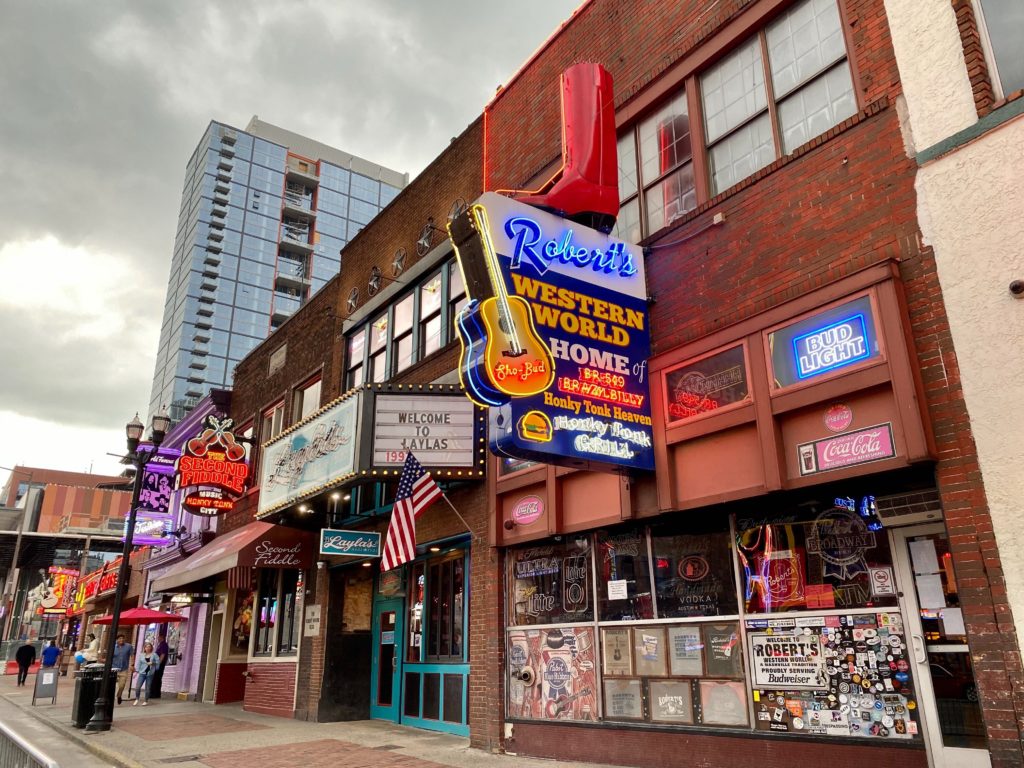
Metro’s Historic Zoning Commission will move under the city’s planning department.
Nashville’s Metro Council voted 24-11 Tuesday night to consolidate the city’s zoning process.
The vote followed a contentious public hearing — which took place, atypically, during the bill’s third and final reading. That meant that the measure could not be easily amended. Still, dozens of residents spoke.
Supporters cited a desire to resolve what they see as rigid enforcement of historic zoning regulations.
Some supporters were members of downtown hospitality groups — an industry that has lobbied city and state leaders against some historic zoning protections in Nashville.
“Over the years, our experience with historical zoning has convinced us of the need for reform,” Ron Karere, with Ryman Hospitality and Opry Entertainment Group, said. Karere detailed their attempt to outfit the downtown bar Ole Red with exterior lighting. “Despite extensive evidence that was provided by the historic preservation experts — and colored lighting does not deteriorate the historical integrity of the buildings — we were sued by historical zoning.”
Some councilmembers have said that approving this change would dissuade state lawmakers from taking action. The legislature had been looking to limit historic preservation tools in Nashville.
But opponents criticized the local council for yielding to the state, and for heeding the requests of hospitality groups.
“For once, the state isn’t to blame for this hurried-up, messy bill that has suddenly been dropped on us. It’s Broadway and Second Avenue owners and lobbyists,” said Catherine Hayden, a Sylvan Park resident. “The lobbyists who are urging you to pass this bill in order to avoid the state bill are the same lobbyists who got this bill filed. How can you let them control you and not call them out?”
On Wednesday afternoon, a day after the council’s move, the state legislation was removed from consideration during a House subcommittee hearing.
Previously reported:
Nashville’s Metro Council is moving forward with a controversial measure that would move Metro’s Historic Zoning Commission under the city’s Planning Department. The decision comes at the same time the state legislature is considering a proposal to gut local oversight of historic buildings — a move that city leaders hope will be halted if the council makes changes to the historic zoning commission.
“If we can demonstrate an approach to the regulatory side of what Metro Historic’s function has been — that, I think, makes a consistent landscape for development services — we still think that we can avoid [state] regulatory preemption,” Mayor Freddie O’Connell told reporters last month.
The council advanced its bill on Tuesday. An earlier version of the bill, sponsored by Councilmember Emily Benedict, would have moved both the Metro Historical Commission and the Metro Historic Zoning Commission under planning. That idea follows a consultant’s report about how the commissions are functioning. The substitute scales back the change, allowing the historical commission to remain autonomous.
While some early opponents expressed appreciation at the substitute’s changes, the bill still sparked debate — and an effort to slow its progress. Some members wanted to allow for a public hearing while the bill is still amendable.
“I think it’s important for us to abide by the settled public expectation that there will be public hearing on this bill on second reading,” Councilmember Clay Capp said.
Tim Walker, the Executive Director of the Metro Historical Commission, echoed the need for public input.
“Given the fast track this legislation is on, the opportunity for meaningful public engagement that has the ability to affect change to the bill and address the issues noted by downtown’s historic property owners has been lost/eliminated,” Walker told WPLN.
Ultimately, the deferral failed. The bill will be on third reading and up for public hearing at the next council meeting. Amendments cannot be made to bills on third reading unless council votes to suspend its rules.
Pressure of state preemption
Council members who want to keep moving ahead pointed to the risk of the state legislation advancing.
There are two zoning bills being considered by the legislature that have city leaders concerned. One removes any say local historic zoning commissions have over properties that are built after 1899 within a “tourist development zone” — and in Nashville, that’s roughly all of downtown. The second is a caption bill pertaining to term limits for members of historic zoning commissions.
“The sense I get from speaking to the folks that know what’s going on on the Hill is that once these bills start moving, it’s hard to put that train back in the station,” Councilmember Jacob Kupin said. “If I’m left with a choice between bad state preemption or good local policy, I’m choosing good local policy.”
Still, some councilmembers questioned whether they were getting the full picture, as members of the mayor’s administration reiterated that historic preservation requirements will remain largely unchanged if the Historic Zoning Commission moves into the Planning Department.
“We keep saying: ‘Well, nothing is going to change. We’re just moving it over here and nothing is going to change.’ Then why are we worried about the state legislature, and why would the state legislature be happy with us moving this to planning if nothing is going to change?” asked Councilmember Tonya Hancock. “It leads me to wonder and think perhaps something might change that we’re just not talking about right now.”
The Metro Council bill will be up for third and final reading — and public hearing — on March 18. The state legislation is waiting in committee.
Correction: This story originally misattributed Councilmember Jacob Kupin’s comment to a different member.

